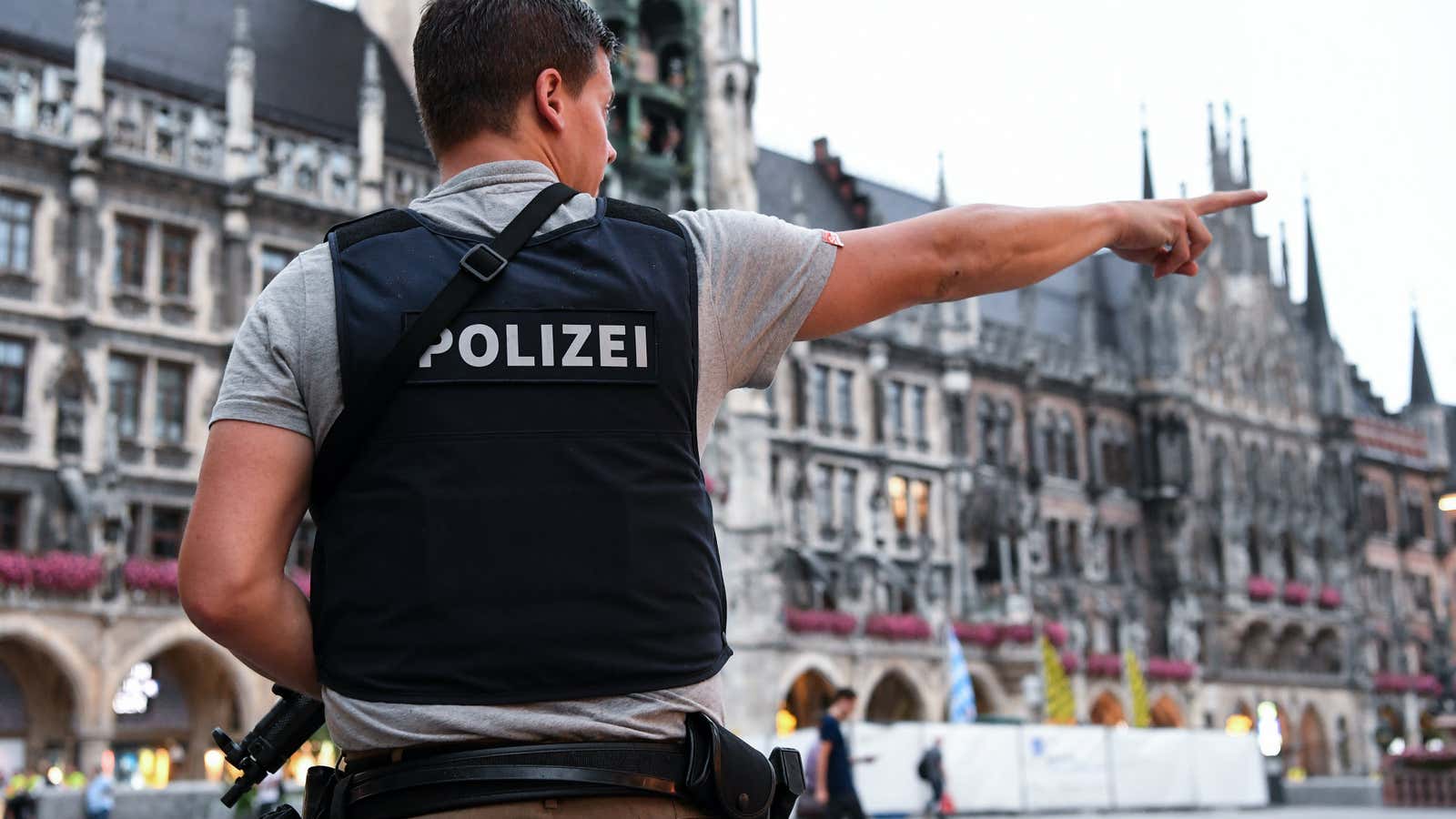A 17-year-old with an axe and a knife on a train. An 18-year-old with a gun at a shopping mall. The two terror attacks in Germany this week follow a pattern that security experts have warned could become more common: young attackers, acting alone.
In its latest report on terrorism in the EU, published earlier this week, Europol highlighted the rise in younger suspects arrested for suspected terror offenses. Alongside a sharp rise in arrests on terrorism charges overall, around one in four suspects apprehended last year was 25 or younger, up from one in six in 2013:
Terror groups like ISIL and Al Qaeda have focused their propaganda efforts on “radicalizing young people in particular,” Europol says. Although ISIL claimed responsibility for the July 18 axe attack by a 17-year-old Afghan refugee on a train near Würzburg, which wounded five people, it is not yet clear whether the teenager merely sympathized with the terror group or was actively directed by it. Police shot and killed the attacker after he fled the train.
In Munich, the motives of the dual German-Iranian national who killed nine and wounded more than 20 on July 22 are even murkier. According to police, the Munich-born student, who killed himself after the shooting spree near a mall in the north of the city, appears to have acted alone and showed no obvious links to terror organizations nor apparent political motivations. Evidence at his home suggested a general interest in mass shootings; the Munich attack came on the fifth anniversary of the mass shooting in Norway by right-wing extremist Anders Breivik, an “obvious link” that is being investigated by police. The attacker may have been receiving treatment for mental illness, although this is not confirmed.
In a separate report (pdf), Europol highlighted “the operational difficulties in detecting and disrupting lone actor attacks.” So-called lone wolves—like the attackers in Würzburg and Munich—are almost always unknown to police or security services, and disproportionately suffer from mental-health disorders, Europol says. The influence of Islamist or other ideologies may have “an aggravating effect” on these individuals, the agency noted. The impressionability of youth, it appears, may also play a role.
Tragically, seven of the nine victims in Munich were teenagers themselves.
